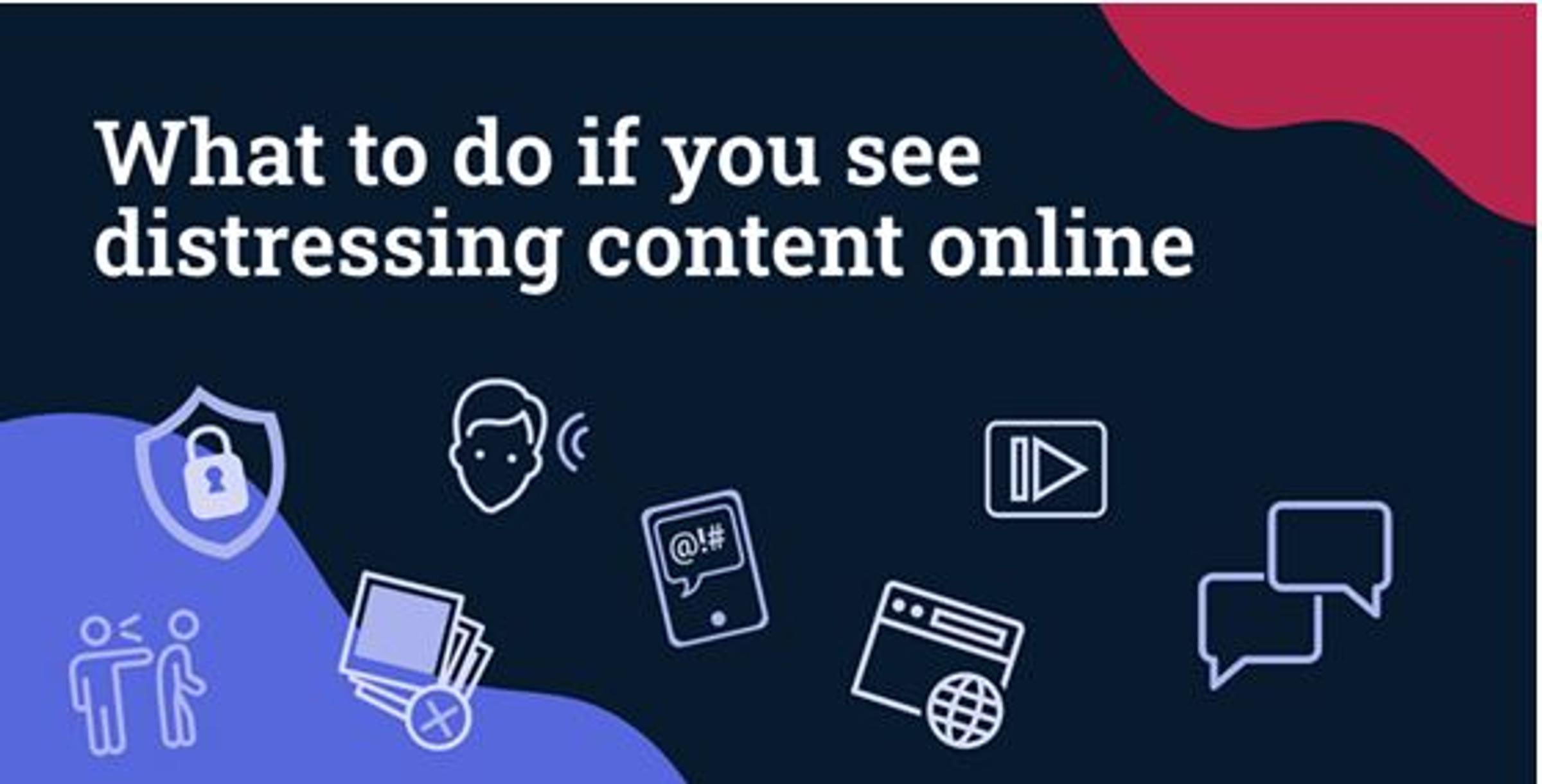Online Safety

Support for Australian families
Following the distressing events of the last several days, young people might be struggling to come to terms with what they have read and seen online.
Online spaces should be safe for everyone. If your child sees violent or distressing material, it is important to check in and talk to them about the content they have seen. We also recommend that children use devices in open areas of the home, rather than in their bedroom, so you can be attuned to how they are coping and what they are reading or watching.
Tips on how to deal with violent and distressing content
- Don't share it further – even if your intention is to help or raise awareness, you may cause distress to others.
- Report it to the platform to help get the material removed quickly.
- If the material is not removed, you can report it to eSafety. eSafety can notify the platform to either remove the content or block access from within Australia. Your actions could protect you and others from seeing that content again.
You can find more guidance and information about distressing online content below.
Relevant resources
We understand as a parent or carer you may want to take extra precautions against your children seeing disturbing content online. eSafety has a range of helpful resources including:
For kids and young people
- I saw something online I didn't like (for primary-school aged children)
- Dealing with disturbing content (for teenagers)
For parents and carers
Support services
If your child, or someone you know, has come across disturbing content online, there are a range of counselling services you can reach out to for help and support.
If a life is in danger call Triple Zero (000) right now.
- Kids Helpline, for 5–25-year-olds: 1800 55 1800 or kidshelpline.com.au (webchat is also available).
- headspace: support for young people, professionals, educators and families
- Lifeline: 13 11 14 or lifeline.org.au
- Beyond Blue: 1300 22 4636 or beyondblue.org.au
More support services, including state-based services aimed at parents and carers, are listed here.
While we understand schools are currently on holidays, we know that at challenging times, schools become hubs of support for their communities, with students, staff and families often seeking advice. We have reached out to educators with information that schools can circulate to their educators, wellbeing staff, and parents and carers, to provide them with strategies to reduce the risk of children and young people being exposed to this content, and to support those who are.
We hope the information above has been useful, and that it provides some practical support for Australian families as we collectively process these tragic events.
